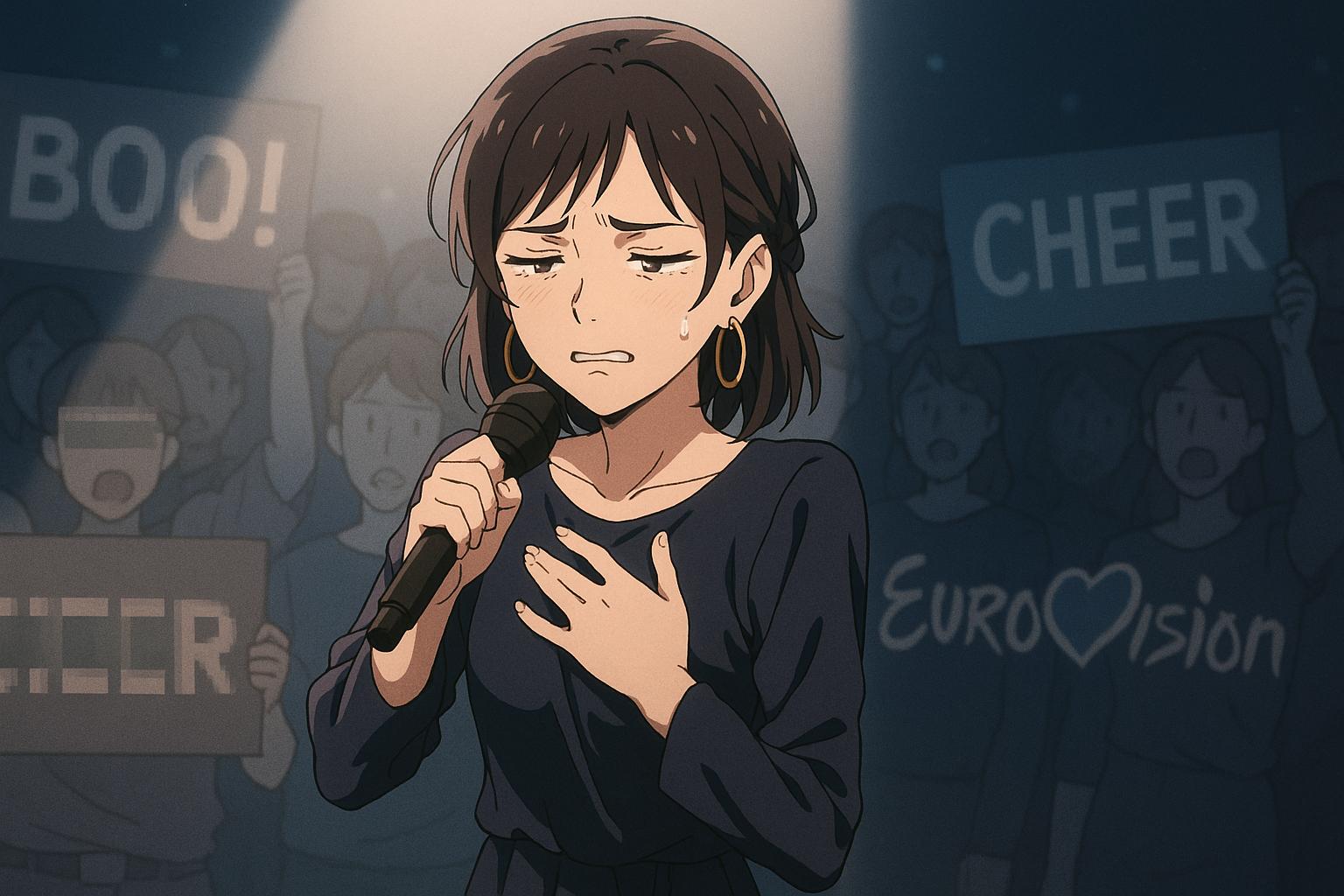During the recent Eurovision semi-final, viewers expressed outrage over what they perceived as censorship of audience reactions during Israel’s performance by singer Yuval Raphael. Watching from the comfort of their homes on BBC One, many audience members sensed a significant discrepancy between the live performance and the muted response broadcasted on television. The song "New Day Will Rise," which Raphael performed, was accompanied by noticeable jeering that appeared to have been largely edited out for the televised audience.
Eyewitness accounts shared on social media suggested that the echoes of boos rang loud and clear within Basel's St Jakobshalle arena. Fans took to platforms like X to voice their frustrations, claiming that the broadcast had manipulated the audio feed to minimise any negative crowd response. One user remarked, “Eurovision adding crowd noise over Israel's performance so viewers can't hear the booing,” highlighting a widespread sentiment that the organisers were attempting to mask the true atmosphere of the event.
This controversy is not isolated. Previous Eurovision events have also witnessed mixed receptions for Israeli contestants. Notably, during the grand final in Malmo, Israeli artist Eden Golan encountered a similarly polarising response, with videos from inside the arena capturing a cacophony of booing interspersed with cheers. Yet, these mixed signals were absent from the live broadcast, stoking further speculation about censorship and the ethical considerations of audience representation during such events.
In light of recent events, the European Broadcasting Union (EBU), which oversees the contest, has strongly denied allegations of audio manipulation. A spokesperson for the EBU reassured the public that no malicious intent was involved and any adjustments to the sound were merely to ensure a balanced audio mix for home viewers. The organisation further asserted that they had not detected any booing during Raphael's performance, insisting that the evening retained a "positive and celebratory" atmosphere throughout.
Despite these assurances, concerns about bias persist among viewers and advocates for transparent media representation. Eurovision's unique blend of cultural celebration and political sentiment often leads to heightened scrutiny over the portrayal of competing nations. Acknowledging this complexity, Martin Green, the ESC Director, praised the audience's commitment to supporting artists and upholding the spirit of unity that Eurovision aspires to embody.
This situation comes against a broader backdrop of protests surrounding Israel’s participation in the contest, particularly in the wake of escalating conflicts in the region. Campaigns aimed at boycotting the event due to these geopolitical tensions have emerged, raising questions not only about the festival's principles of inclusivity but also about the role of broadcasters in faithfully conveying the sentiments of live audiences.
As discussions around the integrity of media representations continue, the Eurovision Song Contest finds itself at a crossroads. The balancing act between artistic expression and audience reception remains a point of contention, inviting ongoing dialogue about how much of the live experience is truly reflected in televised formats. The implications of these debates extend beyond Eurovision, encompassing broader conversations about media ethics and representation in an increasingly polarised world.
Reference Map
- Paragraph 1: Sources 1, 2
- Paragraph 2: Sources 3, 4
- Paragraph 3: Sources 5, 6
- Paragraph 4: Source 7
- Paragraph 5: Sources 6, 2
Source: Noah Wire Services
